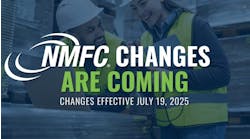The U.S. Department of Labor is proposing a new federal rule to help determine whether workers are employees or independent contractors under the Fair Labor Standards Act (FLSA). The proposal, filed on Oct. 13 in the Federal Register, would guide the classifying of workers and reduce employee misclassification, according to the Labor Department.
According to the new notice of proposed rulemaking (NPRM), misclassification denies workers’ rights and protections under federal labor standards, promotes wage theft, allows certain employers to gain an unfair advantage over law-abiding businesses, and hurts the economy. These misclassifications affect protections such as minimum wage and overtime pay, according to the Labor Department. Current practices affect workers in the home care, janitorial services, trucking, delivery, construction, personal services, and hospitality and restaurant industries, according to the department.
See also: Freight rail union rejects labor deal, reigniting possibility of strike
“While independent contractors have an important role in our economy, we have seen in many cases that employers misclassify their employees as independent contractors, particularly among our nation’s most vulnerable workers,” Labor Secretary Marty Walsh said. “Misclassification deprives workers of their federal labor protections, including their right to be paid their full, legally earned wages. The Department of Labor remains committed to addressing the issue of misclassification.”
The Biden administration attempted to withdraw a Trump administration rule that made it easier to classify workers as independent contractors—but a federal court upheld the rule. Biden’s move would have returned the Labor Department to the rules under 1938’s FLSA to determine worker classifications.
“The NPRM jettisons the Trump regulation's emphasis on two core factors—nature and degree of control over the work and the worker’s opportunity for profit or loss—and proposes to weigh all six of its proposed factors more equally,” according to Scopelitis, Garvin, Light, Hanson & Feary, a trucking and transportation industry law firm. “The NPRM also eliminates the Trump regulation's emphasis on actual practice in favor of also weighing theoretical possibility. And in a break from the weight of judicial precedent, the NPRM explains that all instances of control should be considered, even if deriving from contractual requirements, quality control or safety standards, or legal obligations.”
See also: DOT turns attention to truck parking solutions
The firm noted that its attorneys still are analyzing the 185-page NPRM document filed by the Labor Department.
The new department notice lays out a framework that it said is more in line with fair labor laws and based on judicial precedent. The department said it believes the new rule would preserve basic worker rights and provide consistency for regulated entities. It highlighted six main points the rule would accomplish:
- Align the Labor Department’s approach with the courts’ FLSA interpretation and the economic reality test.
- Restore the multifactor, totality-of-the-circumstances analysis to determine whether a worker is an employee or an independent contractor under the FLSA.
- Ensure that all factors are analyzed without assigning a predetermined weight to a particular factor or set of factors.
- Revert to the longstanding interpretation of the economic reality factors. These factors include the investment, control, and opportunity for profit or loss factors. The integral factor, which considers whether the work is vital to the employer’s business, is also included.
- Assist with properly classifying employees and independent contractors under the FLSA.
- Rescind the 2021 Independent Contractor Rule.
There is a 45-day comment period on the proposal, ending Nov. 28. Comments can be submitted online or in writing.



